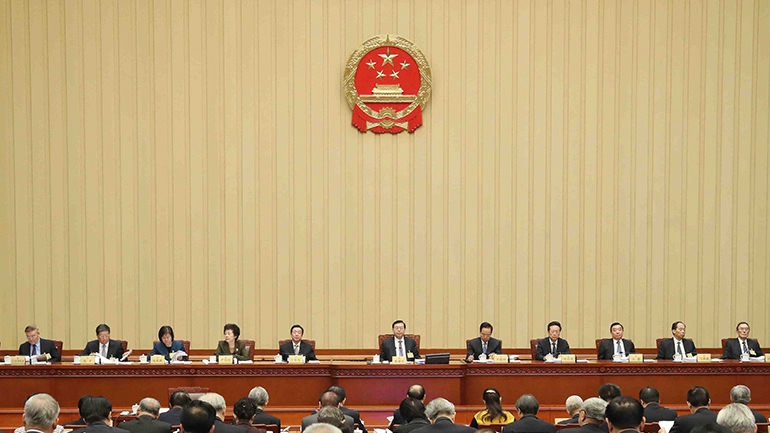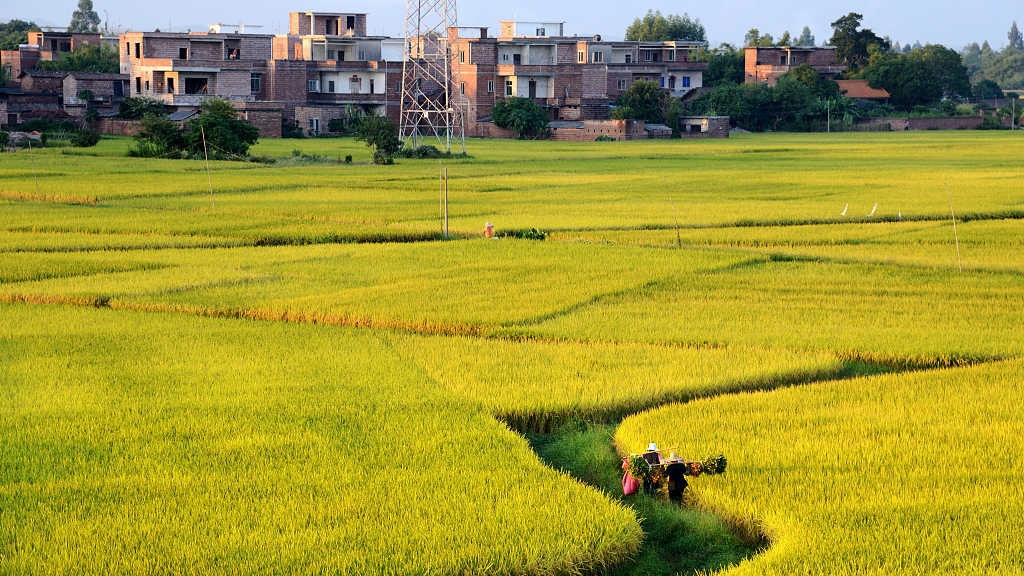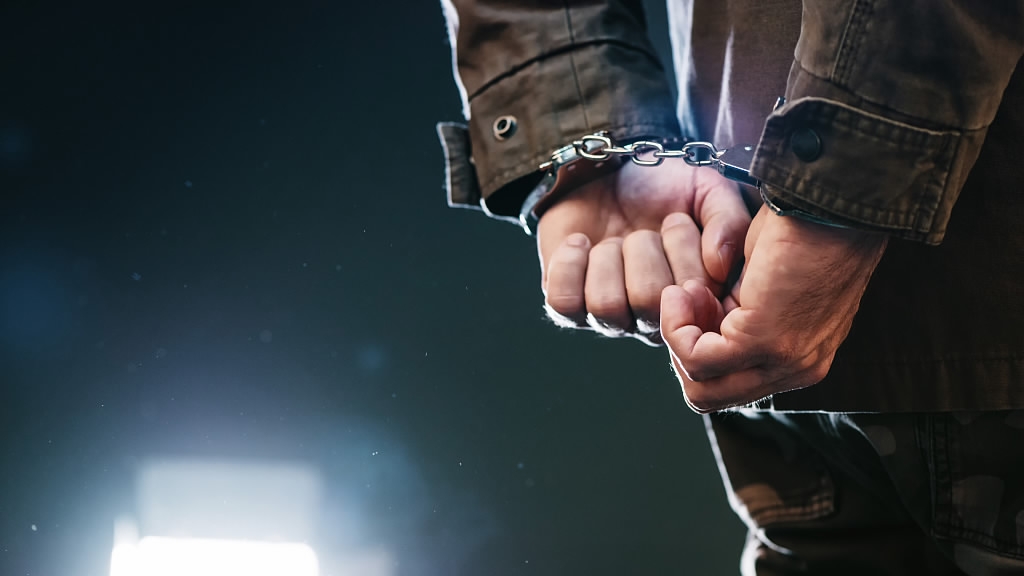
Politics
21:42, 22-Dec-2017
China's top chamber debates legislative changes at new session
CGTN

China's top legislature has opened its bimonthly session to review draft laws on subjects such as the rights of criminal suspects, the prevention and control of soil pollution, and judicial reform.
Zhang Dejiang, chairman of the Standing Committee of the National People's Congress (NPC), presided over the opening session on Friday morning.
Extending pilot plan to mortgage rural land rights
The Chinese lawmakers reviewed a draft decision to extend a pilot program approved in December 2015 that allowed farmers to mortgage their land use rights in 232 regions and housing property rights in 59 others.

Rice fields in Qingyuan city, Guangdong Province /VCG Photo
Rice fields in Qingyuan city, Guangdong Province /VCG Photo
The pilot is scheduled to expire on Dec. 31. The draft stipulates extending the program for a further year to learn from the experience and lay a solid foundation for further legal amendments.
The pilot has achieved strong initial results, with improvement in rural financial services and higher incomes for farmers. By the end of September, the program saw 44.8 billion yuan (about 6.8 billion US dollars) of loans issued in the 232 regions and 26.1 billion yuan issued in the 59 regions.
The Standing Committee of the NPC also heard a report on the draft revision to the Law on Farmers' Specialized Cooperatives, which grants the cooperatives equal legal status with other market entities and the right to invest in enterprises in accordance with the law.
The NPC Law Committee also suggested the draft laws on tobacco leaf tax and ship tonnage tax be put to vote at the session.
Draft law clarifying norms for new detention system
Legislators continued to review the draft supervision law. It includes major revisions to standardize the new detention system, which is designed to replace the practice of "shuanggui" to ensure the rights of detained suspects.

VCG Photo
VCG Photo
The families and work units of detained suspects should be notified of their detention within 24 hours. Exceptions can only be made when there is danger of collusion, evidence or witness tampering or other forms of obstruction to the investigation, according to the draft.
The draft clarifies the previous provision, which vaguely stated that exceptions could be made under "circumstances that could obstruct investigation."
Shuanggui is an intra-party disciplinary practice exercised by Party disciplinary officials under which a CPC member under investigation must cooperate with questioning at a set time and place.
Draft law on basic medical and health care
Chinese lawmakers are considering a draft law on basic medical and health care.
"The law will be the country's first fundamental and comprehensive law on basic medical and health care," said Liu Binjie, chairman of the education, science, culture and health care committee of the NPC.

VCG Photo
VCG Photo
The right to health is for the first time put forward as a basic human right at the legal level in the draft.
It also stipulates that "citizens have the rights and obligations to participate in basic medical care insurance."
It is specified in the draft that all medical and health care institutions should do their part to provide all-aspect and full-life-cycle public health and medical services in prevention, health and fitness, treatment, rehabilitation, nursing and hospice care.
It incorporates health education in the national education system and encourages schools and universities to carry out health education in various forms. Rules on smoking controls in public places are listed in the draft.
Law on protecting reputations of heroes, martyrs
A report on the draft law protecting heroes and martyrs was submitted to and heard at the session for first review.
Departments including public security, culture, press and cyberspace have a responsibility to protect the reputation and honor of heroes and martyrs in their supervision, while it is the duty of Internet operators to handle online information that infringes on heroes and martyrs in a timely manner, according to the draft law.
It bans the illicit appropriation of land and facilities near memorials of heroes and martyrs, as well as any damage or contamination of such memorials.
Those who appropriate, damage or contaminate memorials, and insult or slander heroes and martyrs, may receive administrative penalties from public security or even criminal sanctions, the draft reads.
Revisions to laws on judges, prosecutors
Two draft revisions to laws on judges and prosecutors were discussed.
Compared with the current law, the draft revision to the Judges Law adds stipulations about the establishment of selection committees responsible for examining the professional competence of judge candidates in the Supreme People's Court and provincial-level areas.
According to the draft revision to the Prosecutors Law, a similar selection mechanism for prosecutors has been introduced. It states that committees should be established to select prosecutors in the Supreme People's Procuratorate and provincial-level areas.
Legislators also heard reports on draft laws on basic medical care and health promotion, international judicial assistance in criminal matters, people's juries and others which will be further debated.
Several reports, including one on the implementation of a cybersecurity law and the protection of online information, will be discussed during the six-day session, according to the agenda.
Source(s): Xinhua News Agency

SITEMAP
Copyright © 2018 CGTN. Beijing ICP prepared NO.16065310-3
Copyright © 2018 CGTN. Beijing ICP prepared NO.16065310-3